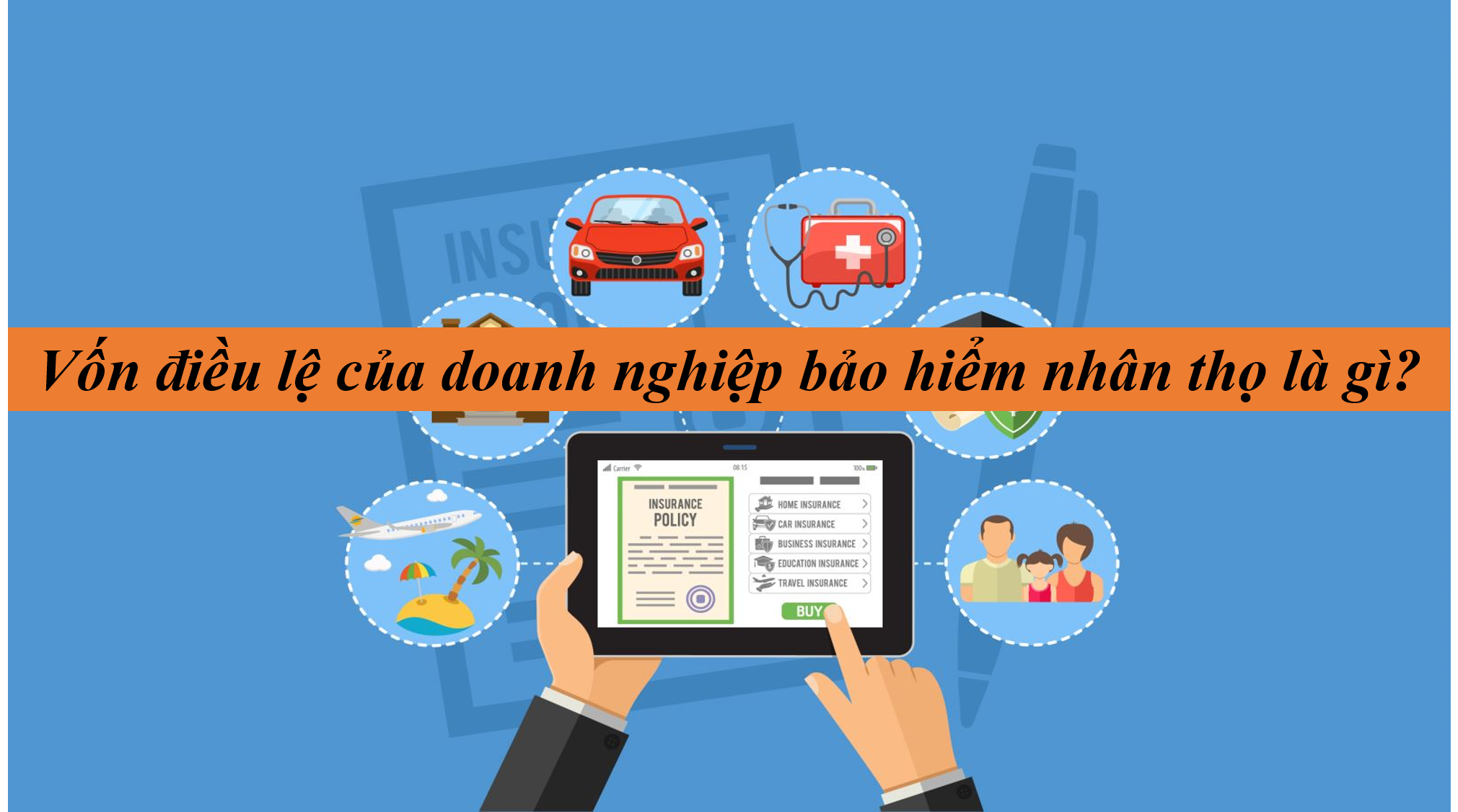 Tìm kiếm
Tìm kiếm
Chương V Luật kinh doanh bảo hiểm 2022: Bảo hiểm vi mô
| Số hiệu: | 08/2022/QH15 | Loại văn bản: | Luật |
| Nơi ban hành: | Quốc hội | Người ký: | Vương Đình Huệ |
| Ngày ban hành: | 16/06/2022 | Ngày hiệu lực: | 01/01/2023 |
| Ngày công báo: | 17/07/2022 | Số công báo: | Từ số 575 đến số 576 |
| Lĩnh vực: | Doanh nghiệp, Thương mại, Bảo hiểm | Tình trạng: | Còn hiệu lực |
TÓM TẮT VĂN BẢN
Văn bản tiếng việt
Văn bản tiếng anh
Sản phẩm bảo hiểm vi mô có các đặc điểm cơ bản sau đây:
1. Được thiết kế ngắn gọn, dễ hiểu, có thủ tục thẩm định bảo hiểm đơn giản hoặc không cần thẩm định bảo hiểm;
2. Chỉ bao gồm các quyền lợi nhằm đáp ứng nhu cầu bảo vệ cơ bản trước các rủi ro về tính mạng, sức khỏe và tài sản của người tham gia bảo hiểm với thời hạn bảo hiểm không quá 05 năm;
3. Số tiền bảo hiểm trên từng hợp đồng và phí bảo hiểm hằng năm cho từng người được bảo hiểm của một hợp đồng không vượt quá mức tối đa theo quy định của Chính phủ.
1. Việc triển khai và tham gia các sản phẩm bảo hiểm vi mô được Nhà nước khuyến khích, hỗ trợ, tạo điều kiện thông qua một hoặc một số biện pháp quy định tại các điểm a, b, d và e khoản 1 Điều 88 của Luật này.
2. Tổ chức cung cấp bảo hiểm vi mô phải đăng ký và được Bộ Tài chính chấp thuận phương pháp, cơ sở tính phí bảo hiểm của các sản phẩm bảo hiểm vi mô.
3. Chính phủ quy định chi tiết các biện pháp quy định tại khoản 1 Điều này phù hợp với định hướng phát triển và điều kiện kinh tế - xã hội trong từng thời kỳ; hồ sơ, trình tự, thủ tục đăng ký phương pháp, cơ sở tính phí của các sản phẩm bảo hiểm vi mô.
4. Bộ trưởng Bộ Tài chính quy định chi tiết phương pháp, cơ sở tính phí của các sản phẩm bảo hiểm vi mô.
1. Tổ chức cung cấp bảo hiểm vi mô bao gồm:
a) Doanh nghiệp bảo hiểm, chi nhánh doanh nghiệp bảo hiểm phi nhân thọ nước ngoài thành lập và hoạt động tại Việt Nam;
b) Tổ chức tương hỗ cung cấp bảo hiểm vi mô thành lập và hoạt động tại Việt Nam.
2. Chính phủ quy định về hồ sơ, trình tự, thủ tục cấp, cấp lại, sửa đổi, bổ sung, thu hồi giấy phép thành lập và hoạt động, đình chỉ nội dung hoạt động của tổ chức tương hỗ cung cấp bảo hiểm vi mô.
3. Bộ Tài chính có thẩm quyền cấp, cấp lại, sửa đổi, bổ sung và thu hồi giấy phép thành lập và hoạt động, đình chỉ nội dung hoạt động của tổ chức tương hỗ cung cấp bảo hiểm vi mô.
1. Doanh nghiệp bảo hiểm, chi nhánh doanh nghiệp bảo hiểm phi nhân thọ nước ngoài được quyền chủ động cung cấp bảo hiểm vi mô phù hợp với nghiệp vụ bảo hiểm được phép triển khai dưới các hình thức sau đây:
a) Trực tiếp;
b) Thông qua đại lý bảo hiểm;
c) Thông qua cá nhân là nhân viên hoặc thành viên của tổ chức chính trị - xã hội, tổ chức xã hội - nghề nghiệp, hợp tác xã được doanh nghiệp bảo hiểm, chi nhánh doanh nghiệp bảo hiểm phi nhân thọ nước ngoài ủy quyền để tư vấn, thu xếp việc giao kết hợp đồng bảo hiểm vi mô cho chính các thành viên của tổ chức đó;
d) Hình thức khác theo quy định của pháp luật.
2. Doanh nghiệp bảo hiểm, chi nhánh doanh nghiệp bảo hiểm phi nhân thọ nước ngoài phải theo dõi, tách và hạch toán riêng doanh thu, chi phí của hoạt động cung cấp bảo hiểm vi mô với các hoạt động khác của doanh nghiệp.
1. Tổ chức tương hỗ cung cấp bảo hiểm vi mô chỉ được cung cấp bảo hiểm vi mô cho chính các thành viên của mình. Thành viên tham gia bảo hiểm vừa là chủ sở hữu của tổ chức tương hỗ cung cấp bảo hiểm vi mô, vừa là bên mua bảo hiểm.
2. Hợp đồng bảo hiểm giữa tổ chức tương hỗ cung cấp bảo hiểm vi mô và các thành viên tham gia bảo hiểm tuân thủ các quy định chung về hợp đồng bảo hiểm, hợp đồng bảo hiểm nhân thọ, hợp đồng bảo hiểm sức khỏe và hợp đồng bảo hiểm tài sản quy định tại Chương II của Luật này.
3. Chính phủ quy định chi tiết việc cung cấp bảo hiểm vi mô của tổ chức tương hỗ cung cấp bảo hiểm vi mô.
1. Điều kiện về thành viên sáng lập bao gồm:
a) Cá nhân là công dân Việt Nam có năng lực hành vi dân sự đầy đủ và là thành viên của tổ chức dự kiến thành lập tổ chức tương hỗ cung cấp bảo hiểm vi mô;
b) Là tổ chức đại diện thành viên theo quy định của pháp luật.
2. Vốn thành lập được góp bằng Đồng Việt Nam và không thấp hơn mức tối thiểu theo quy định của Chính phủ.
3. Có nhân sự dự kiến làm Chủ tịch Hội đồng quản trị, Giám đốc hoặc Tổng giám đốc, người đại diện theo pháp luật, Chuyên gia tính toán bảo hiểm vi mô đáp ứng các điều kiện, tiêu chuẩn theo quy định của Chính phủ.
4. Có kế hoạch triển khai bảo hiểm vi mô phù hợp với số lượng thành viên, mạng lưới của tổ chức.
5. Có dự thảo điều lệ phù hợp với mục tiêu hoạt động của tổ chức tương hỗ cung cấp bảo hiểm vi mô và quy định của Chính phủ.
6. Có hệ thống công nghệ thông tin phù hợp, bảo đảm hỗ trợ, theo dõi đến từng hợp đồng bảo hiểm vi mô, theo dõi tài chính, kế toán của hoạt động bảo hiểm vi mô.
1. Tổ chức tương hỗ cung cấp bảo hiểm vi mô tự chủ về tài chính, tự chịu trách nhiệm trước pháp luật trong phạm vi tài sản hình thành từ hoạt động cung cấp bảo hiểm vi mô.
2. Tổ chức tương hỗ cung cấp bảo hiểm vi mô có trách nhiệm quản lý, giám sát hiệu quả hoạt động, tuân thủ các quy định về chế độ tài chính nhằm bảo đảm an toàn tài chính, bảo đảm thực hiện các nghĩa vụ, cam kết với các thành viên tham gia bảo hiểm, các tổ chức, cá nhân có liên quan theo quy định của pháp luật.
3. Tổ chức tương hỗ cung cấp bảo hiểm vi mô có trách nhiệm thực hiện quản trị rủi ro nhằm kiểm soát một cách hiệu quả các rủi ro phát sinh từ hoạt động cung cấp bảo hiểm vi mô.
4. Toàn bộ lợi nhuận thu được từ hoạt động cung cấp bảo hiểm vi mô của tổ chức tương hỗ cung cấp bảo hiểm vi mô được sử dụng để phục vụ lợi ích cho các thành viên tham gia bảo hiểm thông qua việc giảm trừ phí bảo hiểm, gia tăng quyền lợi bảo hiểm của người được bảo hiểm, hỗ trợ cho các thành viên và các mục tiêu khác theo điều lệ của tổ chức tương hỗ cung cấp bảo hiểm vi mô.
5. Chính phủ quy định chi tiết về tổ chức hoạt động, quản trị rủi ro, hoạt động nghiệp vụ, công khai thông tin, chế độ tài chính, hạch toán kế toán và báo cáo tài chính của tổ chức tương hỗ cung cấp bảo hiểm vi mô.
MICROINSURANCE
Article 144. Characteristics of microinsurance products
A microinsurance product shall have the following basic characteristics:
1. It must be concise, easy to understand; needs to involve streamlined or simplified actuarial procedures; or requires no actuarial service.
2. It merely includes insurance benefits to meet basic demands for protection against life, health and property risks for participants in coverage plans that last no more than 05 years;
3. The sum insured per an insurance contract and annual costs of coverage for each insured person in a contract shall not exceed the maximum limit specified in the Government’s regulations.
Article 145. Building, design and development of microinsurance products
1. The State shall offer incentives, support and preferential treatment for offer of and involvement in microinsurance products through one or several measures specified in point a, b, d and e of clause 1 of Article 88 herein.
2. Entities providing microinsurance products must register and obtain the Ministry of Finance’s consent to the insurance premium calculation method and basis for microinsurance products.
3. The Government shall impose detailed regulations on measures specified in clause 1 of this Article provided that these regulations are aligned with developmental orientations and socio-economic conditions over periods of time; detailed regulations on documentation requirements, procedures and processes for registration for premium calculation methods and bases to be applied to microinsurance products.
4. The Minister of Finance shall impose detailed regulations on premium calculation methods and bases to be applied to microinsurance products.
Article 146. Entities providing microinsurance products
1. Entities providing microinsurance products, including:
a) Insurance companies, branches of foreign non-life insurance companies established and operated in Vietnam;
b) Mutuals providing microinsurance products that are established and operated in Vietnam.
2. The Government shall impose detailed regulations on procedures and processes for issuance, reissuance, revision, modification, withdrawal or revocation of business licenses or permits, or termination of services offered by mutuals providing microinsurance products.
3. The Ministry of Finance shall be vested with authority to issue, reissue, revise, modify, withdraw or revoke business licenses or permits, or terminate services offered by mutuals providing microinsurance products.
Article 147. Insurance companies, branches of foreign non-life insurance companies providing microinsurance products
1. Insurance companies and branches of non-life insurance companies can, on their own account, provide microinsurance products that are relevant to authorized insurance services:
a) directly or in person;
b) via insurance agents;
c) via any person who is a staff member or member of a socio-political organization, socio-professional organization or cooperative authorized by insurance companies or branches of foreign non-life insurance companies to provide counsels on or make arrangement for conclusion of insurance contracts on behalf of such organization or cooperative;
d) in other permissible ways.
2. Insurance companies and branches of non-life insurance companies must track, manage and account for revenues and expenses arising from provision of microinsurance products separately from those arising from services rendered by others.
Article 148. Mutuals providing microinsurance products
1. Mutuals providing microinsurance products can only provide microinsurance products for their own members. Members participating in insurance plans must be both owners of mutuals providing microinsurance products and policyholders.
2. Insurance contracts between mutuals providing microinsurance products and members participating in insurance plans must conform to general regulations on insurance contracts, life insurance contracts, health insurance contracts and property insurance contracts prescribed in Chapter II herein.
3. The Government shall impose detailed regulations on provision of microinsurance products by mutuals providing microinsurance products.
Article 149. Licensing conditions of mutuals providing microinsurance products
1. Conditions of a founding member, including:
a) If that member is a person, he/she must be a Vietnamese citizen having full civil capacity and a member of the entity proposing establishment of the mutual providing microinsurance products;
b) If that member is an entity, it must be the representative of that member as per law.
2. The amount of Vietnamese-dong contribution must not be less than the minimum limit under the Government’s regulations.
3. Any nominee for a Chairperson of the Managing Board, Director or General Director, legal representative or actuary of microinsurance products must meet the conditions and standards under the Government’s regulations.
4. A plan to offer microinsurance products that is in place must allow for the number of members and the network of the mutual to be established.
5. The available draft charter must be in line with business objectives of the mutual providing microinsurance products and conform to the Government’s regulations.
6. The available information technology system must be appropriate; can give support for or track activities of specific microinsurance contracts; can help in financial and accounting matters related to microinsurance.
Article 150. Principles of operation of mutuals providing microinsurance products
1. Mutuals providing microinsurance service shall practise their financial autonomy and bear sole responsibility before law within the scope of property formed from rendering of microinsurance services.
2. Mutuals providing microinsurance products shall be responsible for managing and supervising performance; complying with regulations on financial regimes in order to ensure financial security, successful implementation of obligations and commitments to members participating in insurance, concerned entities and persons under law.
3. Mutuals providing microinsurance products shall be responsible for carrying out risk management practice in order to effectively control risks arising from offering microinsurance products.
4. All of profits earned from offering microinsurance products by mutuals providing microinsurance products can be accessible to serve the interest of members participating in insurance plans by means of reduction in insurance premiums, increase in insurance benefits of the insured, support for members and assistance in accomplishment of other objectives as per the charters of mutuals providing microinsurance products.
5. The Government shall impose detailed regulations on operation, organization, risk management, operations, disclosure of information, financial, accounting and financial reporting regimes of mutuals providing microinsurance products.
Cập nhật
Bài viết liên quan
Những điểm mới của Luật kinh doanh bảo hiểm 2022

Những điểm mới của Luật kinh doanh bảo hiểm 2022
Bạn đã bao giờ tự hỏi những thay đổi mới nhất trong lĩnh vực bảo hiểm sẽ ảnh hưởng như thế nào đến cuộc sống của mình? Luật kinh doanh bảo hiểm 2022 đã chính thức có hiệu lực, mang đến nhiều điểm mới đáng chú ý, hứa hẹn sẽ tạo ra những tác động lớn đến thị trường bảo hiểm và quyền lợi của người tiêu dùng. Bài viết này sẽ giúp bạn hiểu rõ hơn về những thay đổi quan trọng này. 18/11/2024Một tổ chức có thể đồng thời làm đại lý bảo hiểm hai doanh nghiệp không?

Một tổ chức có thể đồng thời làm đại lý bảo hiểm hai doanh nghiệp không?
Bạn đã bao giờ tự hỏi tại sao một số công ty lại có thể đại diện cho nhiều hãng bảo hiểm khác nhau? Trong khi một số người cho rằng việc làm đại lý cho nhiều doanh nghiệp sẽ giúp mở rộng mạng lưới khách hàng và tăng doanh thu, thì những người khác lại lo ngại về chất lượng dịch vụ và sự xung đột lợi ích. Vậy, đâu là thực hư của vấn đề này? Bài viết dưới đây sẽ giúp bạn giải đáp thắc mắc. 18/11/2024Doanh nghiệp bảo hiểm hoạt động dưới hình thức nào?

Doanh nghiệp bảo hiểm hoạt động dưới hình thức nào?
Bảo hiểm là một dịch vụ tài chính thiết yếu, giúp chúng ta đối phó với những rủi ro không lường trước được trong cuộc sống. Nhưng bạn có biết rằng các công ty bảo hiểm hoạt động dưới nhiều hình thức tổ chức khác nhau không? Việc hiểu rõ về các hình thức này sẽ giúp bạn hiểu rõ hơn về quyền lợi và nghĩa vụ của mình khi tham gia bảo hiểm. Bài viết này sẽ giúp bạn tìm hiểu về các hình thức tổ chức phổ biến của doanh nghiệp bảo hiểm tại Việt Nam. 16/11/2024Có mấy loại bảo hiểm bắt buộc? Ai phải tham gia bảo hiểm xã hội bắt buộc mới nhất 2025?

Có mấy loại bảo hiểm bắt buộc? Ai phải tham gia bảo hiểm xã hội bắt buộc mới nhất 2025?
Bảo hiểm bắt buộc là một phần không thể thiếu trong cuộc sống hiện đại, đặc biệt trong bối cảnh nhiều rủi ro như hiện nay. Nhưng bạn có biết có bao nhiêu loại bảo hiểm bắt buộc và ai là những người phải tham gia không? Bài viết này sẽ giúp bạn hiểu rõ hơn về các loại bảo hiểm bắt buộc và đối tượng áp dụng. 21/01/2025Vốn điều lệ của doanh nghiệp bảo hiểm nhân thọ là gì?

Vốn điều lệ của doanh nghiệp bảo hiểm nhân thọ là gì?
Vốn điều lệ của doanh nghiệp bảo hiểm nhân thọ là gì? 04/11/2024Hợp đồng khoán việc có đóng bảo hiểm xã hội không mới nhất 2025?

Hợp đồng khoán việc có đóng bảo hiểm xã hội không mới nhất 2025?
Hợp đồng thuê khoán ngày càng trở nên phổ biến hiện nay khi một bên muốn thuê bên khác hoàn thành công việc nhất định theo yêu cầu của bên giao khoán. Vậy hợp đồng khoán việc có được coi là hợp đồng lao động không? Hợp đồng khoán việc có phải đóng bảo hiểm xã hội không? Theo dõi bài viết dưới đây để có câu trả lời chính xác nhất nhé! 21/01/2025Bảo hiểm xã hội là gì? Đóng BHXH được hưởng những chế độ gì mới nhất 2025?

Bảo hiểm xã hội là gì? Đóng BHXH được hưởng những chế độ gì mới nhất 2025?
Bảo hiểm xã hội đã trở thành một phần quan trọng trong cuộc sống của nhiều công dân. Tuy nhiên vẫn còn nhiều người chưa thật sự hiểu rõ về tầm quan trọng của bảo hiểm xã hội trong đời sống. Bài viết xoay quanh tìm hiểu về bảo hiểm xã hội và các chế độ bảo hiểm xã hội ở Việt Nam hiện nay. 21/01/2025Các nguyên tắc giao kết và thực hiện hợp đồng bảo hiểm


 Luật kinh doanh bảo hiểm 2022 (Bản Word)
Luật kinh doanh bảo hiểm 2022 (Bản Word)
 Luật kinh doanh bảo hiểm 2022 (Bản Pdf)
Luật kinh doanh bảo hiểm 2022 (Bản Pdf)